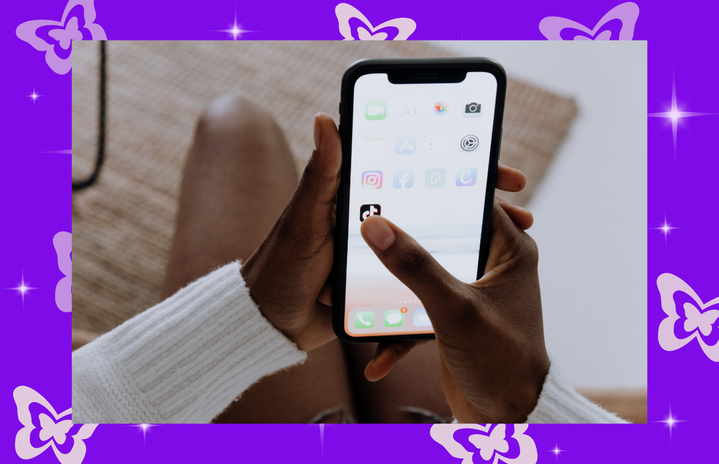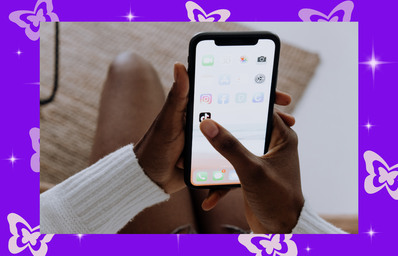TikTok, the unique app attracting today’s youth: purely entertainment or the new toxic personality trait?
Nowadays, it is quite uncommon to meet a young person who hasn’t heard of or used TikTok. Whether participating in a viral dance challenge or passively scrolling through the comment section of a funny video, this app can be found on majority of teenagers’ phones. And yet, what has become more apparent than the high number of users is the number of hours young people are spending on TikTok and other forms of social media, specifically those under the age of eighteen.
Living in a generation where everything is viewable by means of a few scrolls or taps makes it challenging not to engage on the platform. For example, the average social media user spends about six hours and 58 minutes online every day. That is a good chunk of our day spent looking at a screen!
Especially with the recent pandemic, nearly all of us were stuck between the same four walls, sometimes even scrolling through social media during classes. But what has the result of this been? Many teenagers have become very active on social media, occasionally even becoming so addicted to the point where they cannot discern the difference between their real and online lives, as the line has become so blurred. This somewhat explains the new phenomenon of being chronically online.
We have probably all met or know of a person who spends an ungodly amount of time scrolling through TikTok. While quoting memes from the app may not necessarily be problematic, some young people have been consuming ideas and videos on this platform so much, that they struggle to understand the real-life issues and situations around those ideas. This becomes especially important when you look at some of the content that is being spread to younger people. For example, impressionable boys may, (and have), stumbled upon edited videos of Andrew Tate’s take on being an ‘Alpha male’, which, while perhaps could be considered “entertainment”, could also have concerning effects on such young boys. After all, it can become very confusing when one spends more time watching conversations online than participating in them in person.
Another issue created by this chronic use of social media is that it places an unhealthy amount of importance on receiving validation from virtual strangers. This is especially worrying when there are many viral videos where certain drugs may be glamorised or self-diagnosing mental illness is (in)directly promoted and encouraged. As such, being chronically online can be a huge distraction for young people, especially since they are trying to make sense of who they are as individuals and what they believe in.
What remains crucial is reminding ourselves of the importance of being detached from the online world and valuing real things like friendships and family, even if social media remains a part of our lives.
Here are some tips that have helped me strike a good balance between my online and offline life:
- Discovering new hobbies or activities that keep me away from my phone: for example, I enjoy climbing or spending quality time with friends, which tends not to leave as much time to watch thirst traps or “day-in-the-lives”.
- Some of my friends also use time limits on specific apps which has helped them manage how much time they spend on the app.
- Another practical step could be looking at what kind of content you consume and determining whether it might need to be limited or increased.
- Trying not to scroll through TikTok whilst being occupied with something else: keep your phone out of the bathroom!
In short, it’s a good idea to think about our social media habits and how the content we view affects us.


